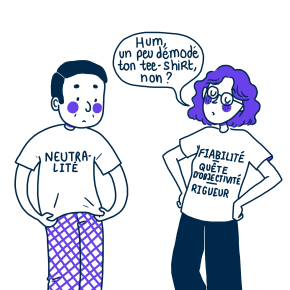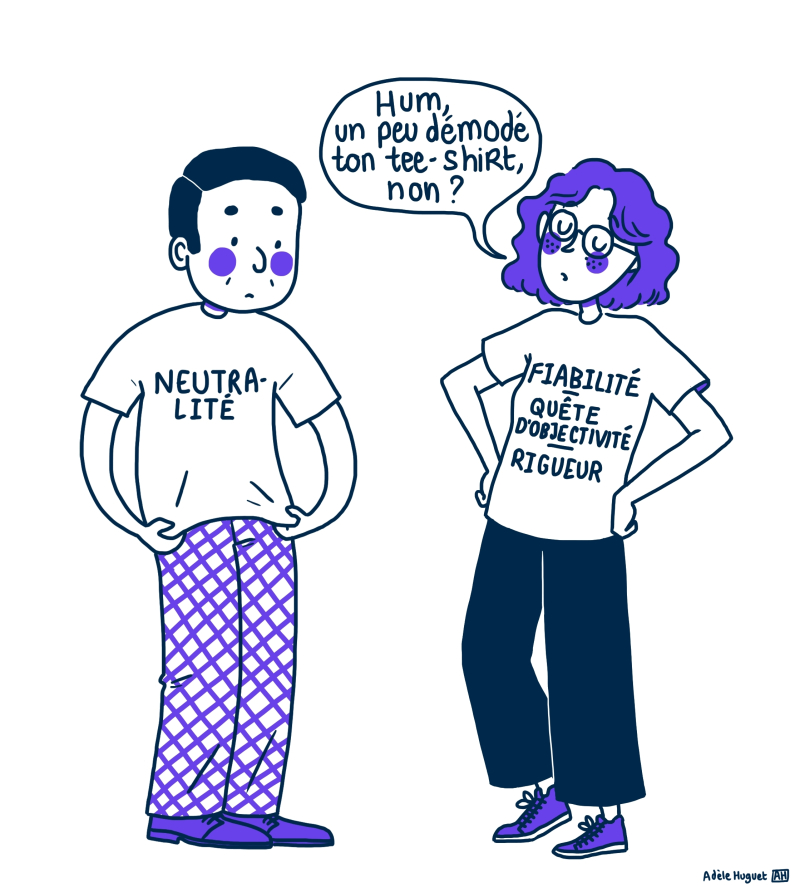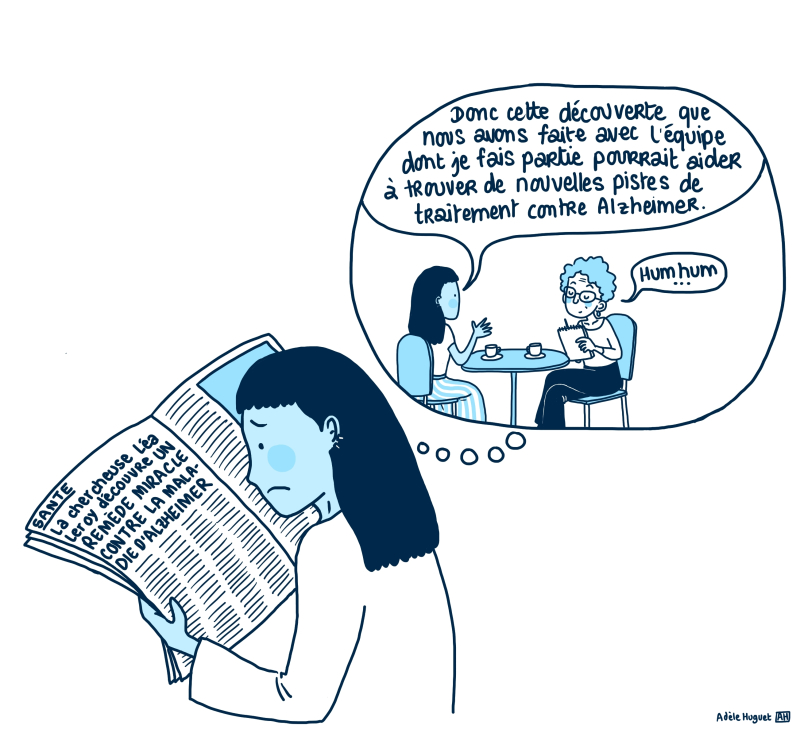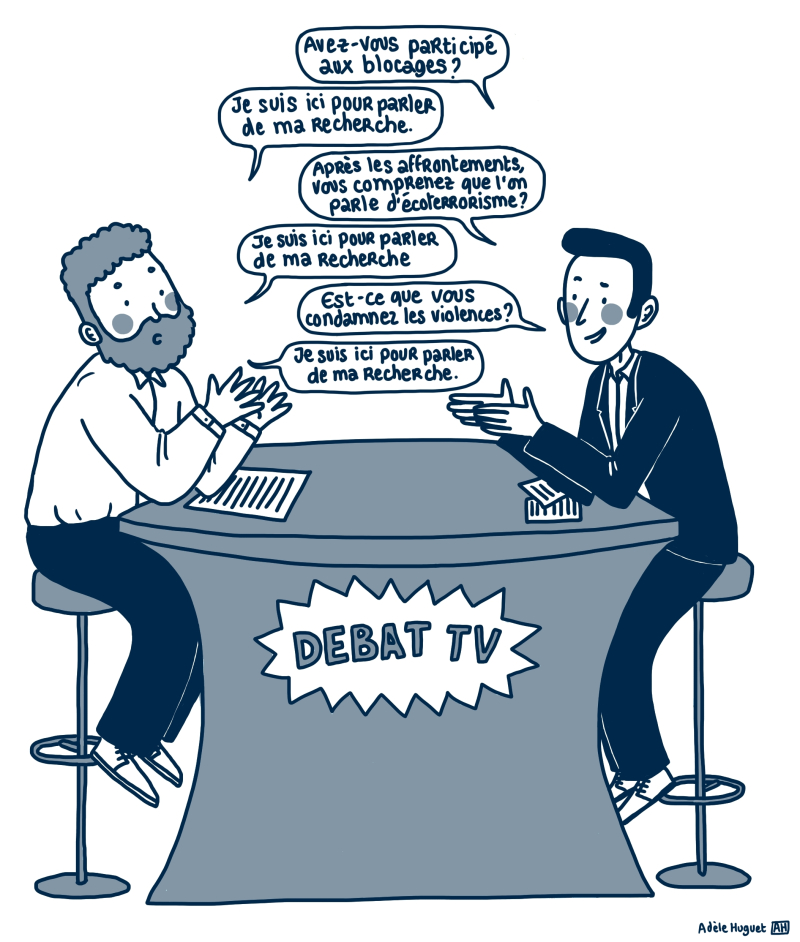A guide to help CNRS scientists express themselves in public
The CNRS has produced a guide to public speaking to help scientists who wish to do so. This true toolbox is based on the recommendations of the CNRS's Ethics Committee and on the expectations of our scientific communities as expressed in a survey conducted in March 2024.
Five years on from the pandemic, we still remember the profusion of fake scientific news that stirred up public opinion at the height of the Covid-19 pandemic. It can be difficult to discern the accuracy of a scientific statement based on properly verified facts in a context of media and social media hype. Antoine Petit, the CNRS Chairman and CEO of the CNRS, points out that "scientists contribute to the quality of public debate by providing solid research-based knowledge. Disseminating this knowledge as widely and as clearly as possible helps combat the misinformation, misconceptions, simplistic solutions and conspiracy theories that can circulate in the media, particularly on social networks". He goes on to urge scientists to "disseminate scientific results and approaches to society, encourage intellectual curiosity and support the development of critical thinking".
A strong commitment to academic freedom
In doing so, the Chairman and CEO of France's leading research organisation is endorsing an opinion given by its Ethics Committee (Comets) and published in 2023. This opinion document noted that "the development of the media and social networks has significantly reinforced the public exposure of committed researchers". Despite this increased exposure, Comets ruled that "in principle there is no incompatibility between a researcher's public commitment on the one hand and the standards attributed to or actually applicable to research on the other". In other terms, this means scientists have the right – but not the duty – to express themselves in public about their research. Nevertheless, to protect scientists from the risks associated with media exposure and avoid a similar cacophony to that of the Covid-19 era, the chairwoman of Comets, Christine Noiville called for the "collective construction of a practical guide to engagement".
The CNRS's scientific communities widely support this need for a reference document for scientists, as was indeed highlighted by an unprecedented internal survey carried out in spring 2024. This survey led to a large-scale mobilisation with one fifth of the organisation's 28,000 scientific staff members responding to the survey and its results are clear – 80% of the respondents considered that the CNRS's thought and study process on the public expression of scientists should be a priority and 83% believe speaking out in public to have a positive impact on society. The survey also revealed that researchers' clear attachment to their freedom of expression and its benefits for society was not reflected by a high level of media exposure in practice, with half of the respondents admitting they never express themselves in public. In these circumstances, the respondents are clearly calling for stronger institutional support for their public expression and to defend them if they are attacked, with 15% of the respondents saying they were afraid of criticism or even cyber-harassment on social networks. This support is thus required so they can speak more calmly and responsibly in the media and on social networks.
A practical toolbox
This is why the CNRS published its first guide to the public expression of scientists on June 17th 2025, with these guidelines intended to evolve over the years ahead. This summary document results from a year and a half's work that also involved the CNRS's Communications Department, Scientific Board, Comets, ethics officers, Legal Affairs Department and Human Resources Department. It is intended to be a practical and educational tool for scientists who wish to express themselves in public. This CNRS guide is not a charter as it does not aim to regulate the speech of its staff members and instead represents a kind of "toolbox to help all CNRS staff strike the right balance between scientists' freedom of expression, their duty of rigour, the need to preserve of the institution's image and the quality of public debate", explains Antoine Petit.
Scientists who would like to express themselves in public will find advice on how to speak out in the written or audiovisual press and also on how to protect themselves effectively on social networks.
As well as this practical advice, the guide also sets out the regulatory framework for public expression by scientists. Their exceptional freedom of expression is guaranteed by French and European laws and texts and is also backed up by a set of legal and ethical obligations that are listed in the guide. Above all, the guide follows the Comets opinion document in stressing the need for researchers to "situate" their media statements properly which means clearly specifying the capacity in which they are speaking and the facts on which their ideas are based. In this sense, basically scientists must observe the same rules on ethics and integrity in their public expression that they apply to their own research work.
The CNRS Chairman CEO explains that "it isn't easy or a comfortable experience to express yourself in public. Nor is it an obligation. But if scientists don't step up to help shape public debate then other less well-informed and less rigorous actors will, possibly people with other motivations than sharing scientifically acquired knowledge".



